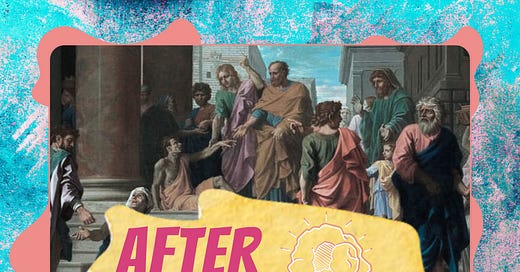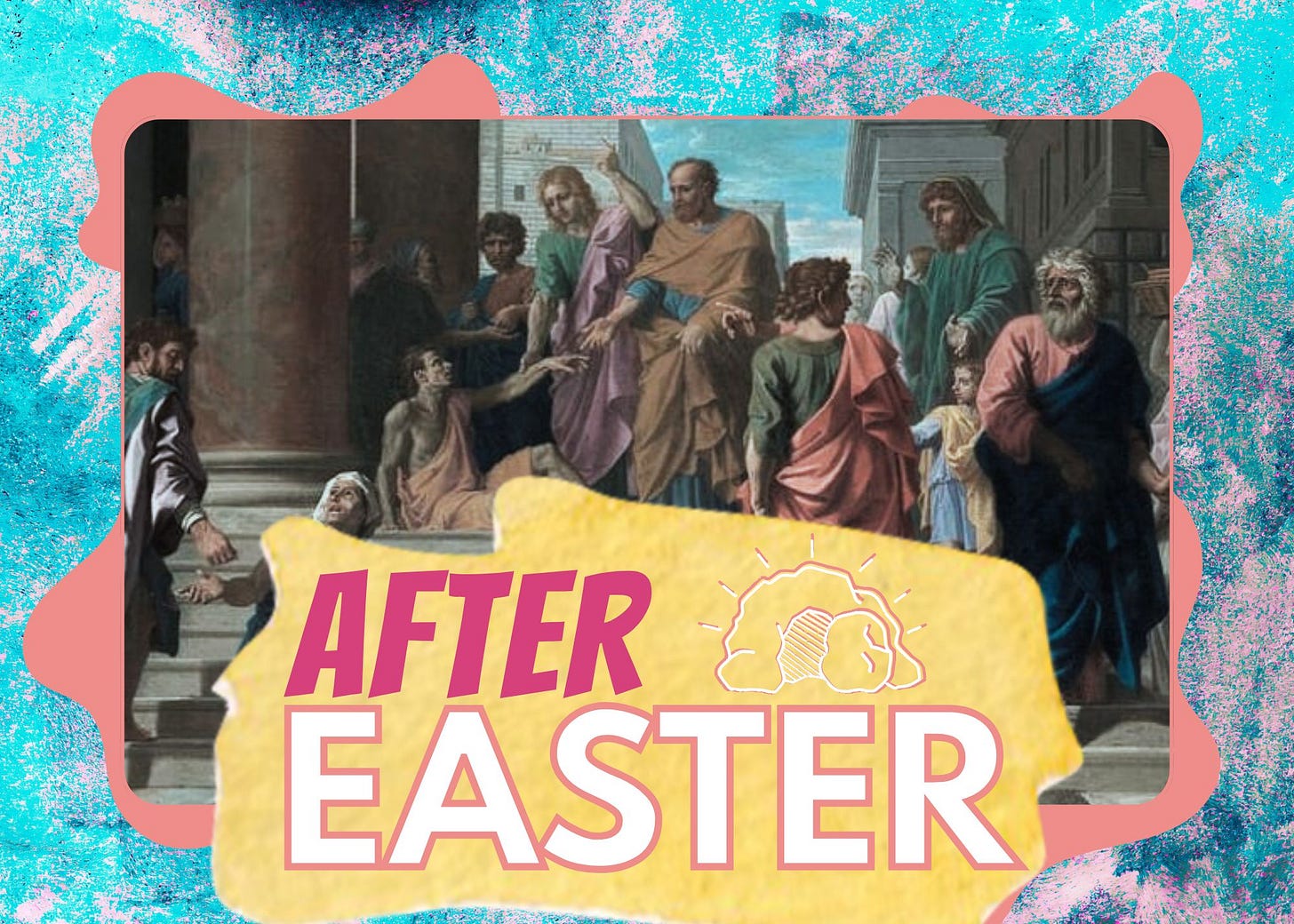|||| Passion Week has come to a close — Christ is risen from the dead! You’ve celebrated His triumph, sang all the songs, coordinated the bright colored outfits and brought your family along for Sunday worship services. But what now? How does the most miraculous day in history affect the rest of your regular, boring life? Every day this week, I’ll be giving a short encouragement on ways to epitomize the Resurrection and embody walking with Jesus. New life is just the beginning. There is so much more God has for you after Easter. ||||
1. You Have a Story
Odds are, you remember.
The history of you and Jesus.
Humans are very strange, for a number of reasons. Our love of stories is an indispensable part of our experience; they are how we connect and make sense of the world. Kipling noted: "If history were taught in the form of stories, it would never be forgotten."1 This is so true of our history with Jesus.
The Apostle Paul had a story like few others. You can almost feel the weight in his words about what Christ has done when he describes salvation, as if he remembers his own transformation upon meeting Jesus:
3 For we also once were foolish ourselves, disobedient, deceived, enslaved to various lusts and pleasures, spending our life in malice and envy, hateful, hating one another. 4 But when the kindness of God our Savior and His love for mankind appeared, 5 He saved us, not on the basis of deeds which we have done in righteousness, but according to His mercy, by the washing of regeneration and renewing by the Holy Spirit.
— Titus 3:3-5
Those words should become branded on our souls! We should be moved (daily) by the work God has done in bringing us to Himself, forgiving our sin, cleansing us and giving us eternal hope. Your heart should have it memorized, beat for beat, milestone for milestone. And not just generics, but the specifics: what God has done in you. Where you were, all the baggage you brought along, the wounds that were impossible to heal, the miracles God did. You have a story. And it’s a really good one.
2. Seen & Heard
In the book of Acts, Peter and John have a powerful encounter with a man who couldn’t walk (Acts 3:1-10). The result was a miracle right there at the gate of the temple complex where the beggar’s lameness was eradicated by Jesus. Fireworks.
Through the ensuing hubbub and amazement of the crowds followed by Peter’s explanation of Jesus being the source of this miracle, Peter and John get arrested and questioned by the Council. Those of the high-priestly line gathered together and admitted there was something to this story — a legitimate healing. After ordering them to stop talking about Jesus, the apostles’ response is epic:
19 But Peter and John answered and said to them, “Whether it is right in the sight of God to give heed to you rather than to God, you be the judge; 20 for we cannot stop speaking about what we have seen and heard.”
— Acts 4:19-20
Supernatural works of God are always fun. The shock-value, the awe. They’re like the icing on the cake. But John and Peter had a significant well of regular, clock-in-each-day history with Jesus to draw from that gave them confidence in Who He is. That same confidence drove them forward to tell the story; to not stop speaking about what they had seen and heard. Years after this encounter in Jerusalem, John would go on to write about his conviction to keep telling the story:
What was from the beginning, what we have heard, what we have seen with our eyes, what we have looked at and touched with our hands, concerning the Word of Life— 2 and the life was manifested, and we have seen and testify and proclaim to you the eternal life, which was with the Father and was manifested to us— 3 what we have seen and heard we proclaim to you also, so that you too may have fellowship with us; and indeed our fellowship is with the Father, and with His Son Jesus Christ.
— 1 John 1:1-3
The lives of the apostles exemplified utter conviction that Jesus rose again, and they were compelled by their experiences and by the Holy Spirit to keep telling that story, whatever it cost them.2 What Jesus had done in their lives was worth transmitting to others so that they could receive the same life-transforming power of the good news. They couldn’t stop talking about what they has seen and heard and felt. But this isn’t just limited to 1st-century apostles: you have to share the story, too.
3. Real Life Good News
A friend of mine recently came back from a missions trip in east Africa. One thing I find awesome about the way they share the good news is with stories. They travel deep into the bush, to unreached peoples who have not once heard the name of Jesus, and tell them over 25 stories through translators to help orient these people to the narrative of the Scriptures. One will speak of the great God Who made the sun and moon; another, of the brave boat-builder who saved man and animals. Finally, they tell of the Chosen One that came down from the heavens to give His life for wicked humanity.
At times, the miraculous breaks out. Healings, repentance and baptisms result. All because faithful people carry the story.
“The destiny of the world is determined less by the battles that are lost and won than by the stories it loves and believes in.”3
— Harold Clarke Goddard
Christ’s command in the Great Commission is not only for elite spiritual super-soldiers or theologians, but everyone (Matthew 28:18-20). Sharing the Gospel across the earth is what we are called to do if we are really His disciples. And that means using our story in real life with real people.
Put it into Practice:
Today, remember your testimony — when Jesus found you. Where were you in life? How did you meet Jesus? What are you grateful for? How has your soul changed now that you’re in Christ?
Get alone for a few minutes and write your story down. Get very specific. Often we realize things in a fresh way when we start to write them. When you’re done, read it out loud and start practicing how to tell your story.
Pray and thank Jesus for saving you! Ask Him for help in stewarding your story well and being able to share it with others so that they may also know Him.
Tell someone your story this week. Maybe it’s a co-worker, a neighbor, a friend or a family member. But tell someone. It’s as simple as saying “let me tell you a story.”
Kipling, R. (1970). Life’s handicap. p. 190.
McDowell, S. Did the Apostles Really Die as Martyrs for their Faith? (2013, November 4). Biola Magazine - Biola University Blogs. https://www.biola.edu/blogs/biola-magazine/2013/did-the-apostles-really-die-as-martyrs-for-their-f
Goddard, H. C. (2009). The Meaning of Shakespeare, Volume 2. University of Chicago Press. p. 208.







I love that Goddard quote!
I love the challenge of, What now?”